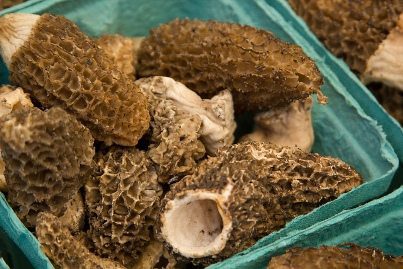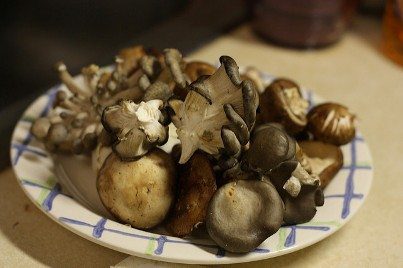Many people eat mushrooms because they taste great, but they offer tons more than flavor. They’re rich in vitamins and other nutrients the body needs. A recent study, however, discovered that some common ways of cooking them alter important health benefits of mushrooms. And the findings don’t agree with earlier studies.

What Are the Health Benefits of Mushrooms?
Since they don’t come from plants, there are no phytonutrients in mushrooms, yet they are still natural food with big benefits. They are heart healthy, control blood sugar, and improve your immune system. Low in sodium and carbohydrates, they contain zero fat and cholesterol but are high in potassium and fiber. You get more potassium from a single portabella mushroom than a whole banana!
Mushrooms are also a good source of the B-vitamins, particularly riboflavin, niacin, and pantothenic acid, along with micronutrients: selenium, iron, copper, zinc, manganese, tryptophan, phosphorous, folate, pyridoxine, and thiamine. And if exposed to sunlight after harvest, mushrooms contain vitamin D2.

Health benefits of mushrooms get even more profound when you look at the list of other compounds they contain. Their high levels of polyphenols make them more powerful antioxidants than zucchini and green peppers. Mushrooms are cell renewers with cancer-fighting properties. They are rich in Ergothioneine, a powerful antioxidant and anti-inflammatory agent that is only available to your body when cooked. One of the few dietary sources of selenium, it too is also released through cooking.
Just so there’s no confusion, these are the properties of the culinary mushrooms (not medicinal) – like button, oyster, crimini, portabella, and shiitake. There are over 200 edible kinds of mushrooms, so that’s not an all-inclusive list. Some health benefits are significantly greater in one kind over the others, so you might want to investigate them individually.
Protecting Mushrooms’ Nutritional Properties
As delicious as mushrooms are sauteed or stir-fried in butter or olive oil, it’s greatly reducing the health benefits of mushrooms. That’s what the scientists and Spain’s Mushroom Technological Research Center of La Rioja discovered last fall. Frying and boiling remove a significant amount of antioxidants and proteins.

The study was done on the most commonly eaten button, shiitake, and oyster mushrooms prepared via boiling, frying, microwaving, and grilling. Frying greatly increased fat content, which should come as no surprise, but grilling with a light brushing of olive oil was found to barely increase calories while enhancing fatty acids. That’s excellent news!
Cooking in the microwave or on the grill both increased the polyphenol levels and antioxidant activity with no significant nutritional losses. So much for buying dried mushrooms and rehydrating them by boiling… what a waste of important health benefits. But if it were in a broth or sauce as opposed to water, then the missing contents might be intact in the finished dish, since the researchers felt that some losses in boiling and frying were due to leaching into the oil or water. Their study results were recently published in the International Journal of Food Sciences and Nutrition.
Expand your culinary horizons and make the most of the health benefits of mushrooms through variety. Eat all kinds of mushrooms regularly.
More Info:
- Nutrition Journal Paper 2017
- Vitamin D2
- Nutrition Facts 2015
- Are Mushrooms a Superfood?
- More Nutrition Info
- Health Benefits by Type
- Edible Mushroom List
Images courtesy of USDA public domain, Roland Tanglao, Phil Whitehouse, and Philip Matarese (respectively).